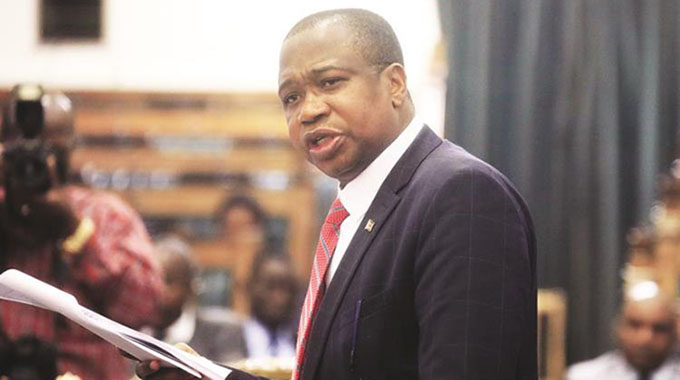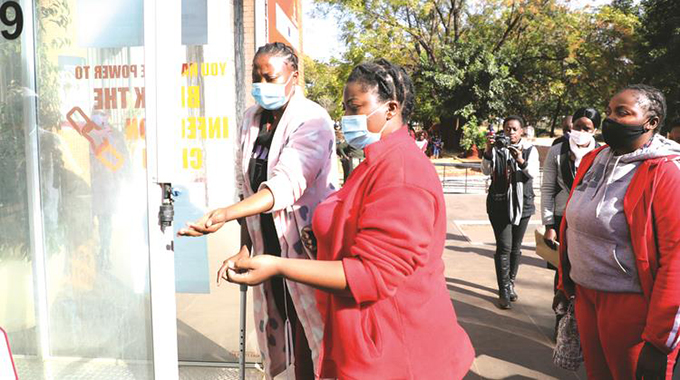Plan to deal with inflationary pressures in place

Herald Reporter
An elaborate and thorough response plan has been drawn by Government to cushion citizens from the impact of prices increases caused by a rise in global world fuel prices.
Government has since flooded the market with fuel and reduced taxes on petroleum products to reduce the rate of price increases.
A rise in global gold and diamond prices is also expected to see Zimbabwe generate reasonable sums of foreign currency, which would in turn, be used to stabilise the local currency and import products that are not available locally such as fuel.
Speaking after yesterday’s Cabinet meeting, Finance and Economic Development Minister, Professor Mthuli Ncube, said 30 million litres of fuel had been pushed onto the market at the free-on-board (FOB) price, which has helped maintain stable fuel prices in the country despite continuous global rises.
Prof Ncube said the recent rise in prices of basic commodities was attributed to the global economy caused by the Russian/Ukraine conflict, which triggered the increase in fuel prices on the international market, thereby affecting prices of all commodities relying on it for transportation.
He added that despite the global fuel price increase, mineral prices across the world have also shot up and Zimbabwe expects huge revenues from the sector and boost Government revenues.
“There are negative factors that we are importing from the rest of the world with these negative spill-overs but also we have positive spill-overs,” said Prof Ncube.
“On the negative front is this issue of imported inflation which is the spill-over from the global economy and the channels of transmission is through the global value chains, through the fuel/oil price.”
Prof Ncube said Zimbabwe has identified fuel as the channel bringing in higher prices for basic goods and decided to reduce the excise duty on fuel, to ensure the price comes down.
“We have put a cap on the fuel increase and by doing that it means the amount of inflation transmitted through the fuel channel is therefore not as large as otherwise would have been the case had we not done that.
“We sold into the market 30 million litres of fuel from our reserves as a Government. We sold this at the FOB price of the previous week so that we maintain the same fuel price.
“That is why you see that we have maintained the same fuel price this week for petrol and diesel. If you follow the FOB, it should have increased but we have dampened that,” said Prof Ncube.
He said they have taken the action to cushion citizens by reducing the costs of transportation on inflation, while on the food front, they are procuring imports for wheat production and fertiliser for the summer cropping season.
Diamond prices are at one of their highest levels ever, said Prof Ncube, and there is huge demand for diamonds globally.
Similarly, gold prices are strong and with production rising, Zimbabwe is expected to cushion itself from the impact of international fuel through strong gold and diamond prices.
Prof Ncube said the Government had done a lot to ensure that the fundamentals that drive monetary policy were in place.
They have also promoted the use of the local currency by levying some taxes in local currency.
Speaking during a post-Cabinet briefing yesterday, Acting Minister of Information, Publicity and Broadcasting Services, Dr Jenfan Muswere, said the implementation of the NDS 1 had been successful.
“The nation is advised that implementation of NDS1 has largely been successful despite the adverse effects of the Covid-19 and the exchange rate induced inflationary pressures on the economy.
“On the economic growth front, the national GDP growth for 2021 stood at 7,8 percent, mainly on account of the good 2021 agriculture season, higher international mineral commodities prices, a general stable macroeconomic that enabled domestication of some value chain, and management of Covid-19.
“On image building, Cabinet advises that Government efforts saw eight community radio stations being licensed in September 2021, bringing to 14 such radio broadcasters licenced to promote diversity and plurality,” said Minister Muswere.
He said the Access to Information and Protection of Privacy Act was repealed and replaced with the Zimbabwe Media Commission Bill, which has already been gazetted.










Comments